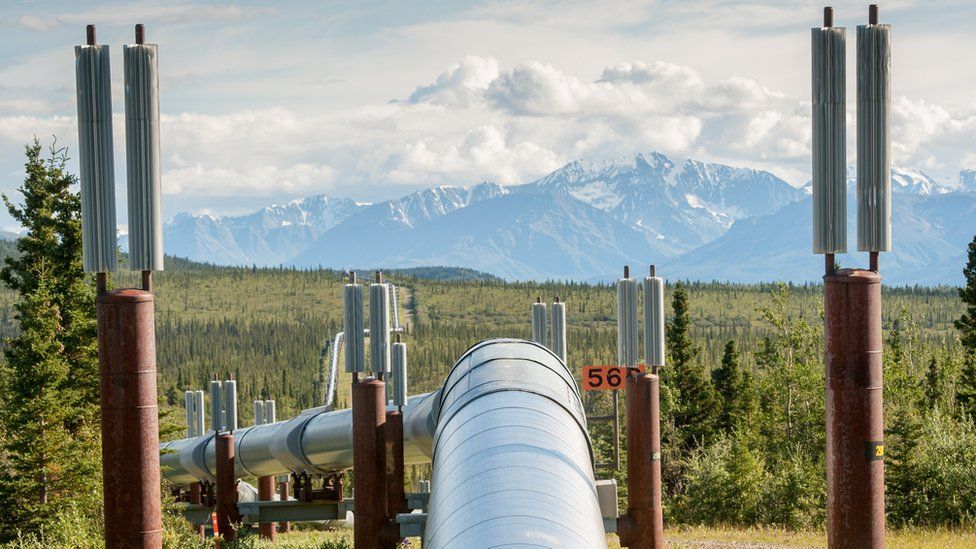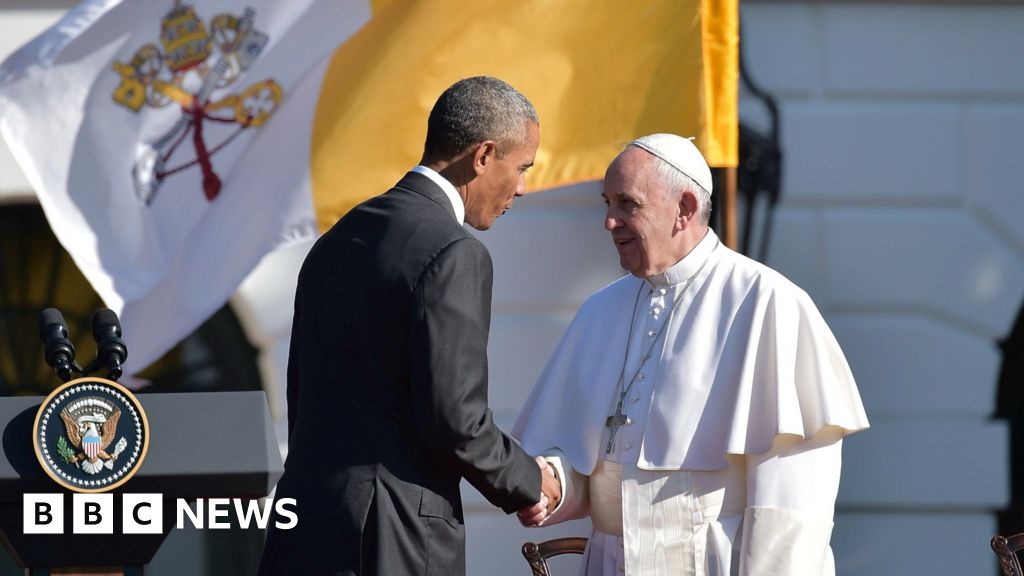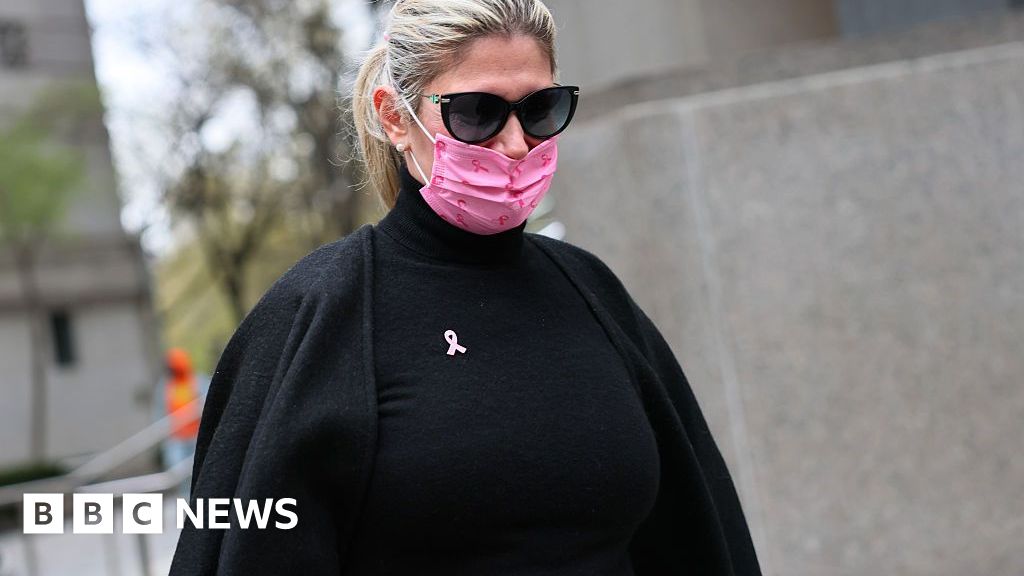ARTICLE AD BOX
 Image source, Getty Images
Image source, Getty Images
The oil drilling development would be in Alaska Native Lands
By Esme Stallard
Climate and Science Reporter, BBC News
US government officials are expected to make a decision on one of the biggest US oil projects in decades this week.
Environmental groups and some Native residents have long opposed the proposal because of its potential for climate impacts and wildlife damage.
But opposition has grown rapidly in the last few weeks as the #stopwillow campaign has gone viral on TikTok.
ConocoPhillips, the company behind the project, said it would create thousands of jobs and revenue for locals.
The Willow oil project - if agreed - could produce up to 180,000 barrels of oil a day, making it the largest oil project in the region for decades. By comparison, Prudhoe Bay in Alaska, which is the largest oil field in North America, produces 281,800 barrels a day.
The US Bureau of Land Management (BLM) estimated that the project would produce up to 278 million metric tons of CO2e over its 30-year lifetime - the equivalent of adding more than 2 million cars to roads in the US.
CO2e is a unit used to express the climate impact of all greenhouse gases together as if they were all emitted as carbon dioxide.
Environmentalists argue this undermines President Biden's credibility as a leader on climate change action, after his pledge to make the US a net zero contributor to climate change by 2050.
Mike Scott, senior campaign representative at environmental charity Sierra Club, said: "Approving [the willow project] after passing the largest climate bill in history would be a giant step in reverse."
The BLM's environmental impact assessment recommended scaling back the project to three drilling sites from five, and offsetting half the emissions, for example by planting trees to capture the carbon.
It said this would ensure the US's target of reducing its net greenhouse gas emissions by 52% below 2005 levels would still be achieved.
ConocoPhillips spokesman Dennis Nuss told the BBC: "We believe this project fits with the Biden administration's priorities on environmental and social justice, facilitating the energy transition, and enhancing our energy security."
Representatives of Alaska's native Iñupiaq have also raised serious concerns about the project's local environmental impacts, including disturbance to local wildlife, disruption to traditional hunting practices and a decline in air quality.
The drilling site would sit in the Arctic National Wildlife Refuge (ANWR) - the largest area of undisturbed public land in the US, and often described as America's last great wilderness.
It plays host to critical species including polar bears and the largest population of porcupine caribou.
Advisory Board Member to the Native Movement and Mayor of Nuiqsut, Rosemary Ahtuangaruak, has said the mitigating measures are not enough: "We know our way of life and the importance of our future generations and there is nothing in the new document that gives us assurances that we will not be put at risk."
Image source, The Washington Post/Getty Images
Image caption,Dr Rosemary Ahtuangaruak, the mayor of Nuiqsut, is worried the project would damage the way of life of the Iñupiat
Other local leaders have been more supportive of the project and the economic benefits it could bring to local communities.
Asisaun Toovak and Chester Elak, mayors for the City of Utqiaģvik and Wainwright respectively, wrote early this week in regional paper The Alaska Dispatch: "Without critical funds made available through responsible resource development, many of our people would be forced to leave the lands they have inhabited for thousands of years, thereby extinguishing many of the important characteristics of Iñupiaq culture."
The BLM estimates the project could generate between $8m and $17m (£6m to £14m) and create 300 permanent jobs.
In an apparent nod to the growing opposition on social media, Mr Elak and Mr Toovak also said in their opinion piece: "When it comes to Alaska's proposed Willow Project, the voices of the people whose ancestral homeland is most impacted have largely been ignored."
In the last seven days videos on social media platform TikTok tagged with #stopwillow have gained 20 million views in the United States.
Young TikTokers posting the videos have encouraged viewers to send letters to President Biden asking him not to go ahead with his decision. They report that one million letters have been sent, including from brands such as Patagonia.
Image source, TikTok/Alex Haraus
Image caption,TikToker Alex Haurus has more than one million views on his videos against the Willow project
As of Thursday a change.org petition calling to stop the Willow Project on environmental grounds has gained more than three million signatures - making it one of the most signed petitions on the platform.
Senator Dan Sullivan, who is one of the three Alaskan congressional delegation members in support of the project, suggested that the social media trend might be the work of outside influences. During the introduction of a new bill to limit TikTok this week, the senator said: "Maybe that's the Chinese Communist Party trying to influence young Americans."
A decision on the project is expected by the end of the week. The US Department of the Interior has 30 days from the final environmental impact assessment issued by the BLM to make a decision. It declined to provide a comment to the BBC.

 2 years ago
47
2 years ago
47








 English (US) ·
English (US) ·